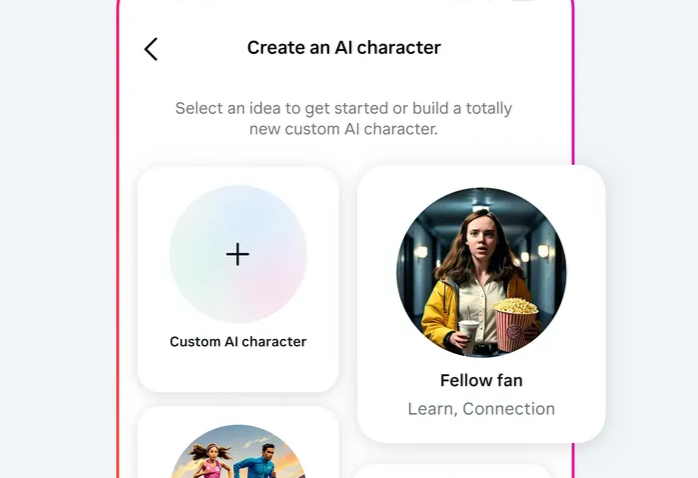Meta's new AI study can generate AI figures on Instagram, WhatsApp, Messenger and Web. Meta can open the ability to use new tools to create your AI version on Instagram or Web. Pushing creators and business owners will use these AI configuration files to talk to their followers. They will be able to talk to people directly in the chat and respond to comments in the author's account. Meta says Instagram users in the US can get started with AI Studio via either its website or by starting a new “AI chat” directly in Instagram.
In a blog post on Monday, the company writes that “creators can customize their AI based on things like their Instagram content, topics to avoid and links they want it to share.” The post goes on to say that creators will be able to toggle things like auto-replies from their AI and dictate which specific accounts it’s allowed to interact with. AI Studio also allows you to create brand new AI characters that can be placed in meta apps. Here, Meta comes after start -ups, such as character.Aai and replica, where people are already talking to thematic chat robots and even falling in love. Like OpenAI's custom GPT store, Meta will display AI characters that people have created for others to try.

Matt's first foray into the concept prompted some celebrities to create their own versions of artificial intelligence with the same similarities but different names and characters. At the time, Matt said he took this approach because he was concerned that AI versions of celebrities would say questionable things on behalf of their humans. (Even with AI Studio's built-in controls, this still inevitably happens. After all, we are dealing with generative artificial intelligence.
At least Meta seems to understand that this is dangerous territory. AI profiles are clearly labeled wherever they appear, the company says. A company handbook for creators goes into more detail about the AI creation process, and it looks like the onus is on the creator to list the topics an AI won’t engage on. One of Meta’s example questions that an AI can be told to not respond to: “Should I invest in crypto??”

.png)


.png)
.jpg)
.jpg)
.jpg)
.png)
.png)
.png)